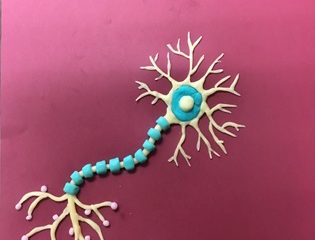Here is what I am reading today:
“Online daters are reluctant to use partisan politics to attract a potential mate, according to new research co-authored by Brown political scientist Rose McDermott. The study, published in Evolution and Human Behavior, shows that singles are more likely to admit they are overweight on their online dating profiles than to say they are politically liberal or conservative.”
“For decades, researchers have observed that, on average, firstborns score higher on intelligence tests than their later-born siblings. The further down a child is in birth order rank, the lower his or her IQ compared to older siblings.This is nothing I’d brag about. I think it inspires resentment and eye-rolling among later-borns. (Not to mention that intelligence tests and what they really measure are a controversial bugaboo. But let’s put that aside for now.) There’s no obvious reason for the difference in test scores because siblings often have the same parents and grow up in the same family environment. “
“Rambunctious one-year-old Teco, a third-generation captive-born bonobo at the Great Ape Trust in Des Moines, Iowa, has an ape’s usual fondness for games and grapes. But perhaps because of trauma from a difficult birth (his mother was in labor for 60 hours) or a genetic predisposition, Teco is different from his bonobo peers in ways that resemble autism in young children. He could not cling to his mother or nurse the way healthy young apes do instinctively, mimicking the aversion to physical contact seen in children with autism. Teco also tends to fixate on shiny objects and avoids eye contact, and he has trouble coordinating his four limbs. A genetic analysis of bonobos, already under way, may shed light on Teco’s condition and offer new perspectives on autism’s genetic roots in humans.”
“A study led by Andrew Gallup, a postdoctoral research associate in Princeton University’s Department of Ecology and Evolutionary Biology, is the first involving humans to show that yawning frequency varies with the season and that people are less likely to yawn when the heat outdoors exceeds body temperature. Gallup and his co-author Omar Eldakar, a postdoctoral fellow in the University of Arizona’s Center for Insect Science, report this month in the journal Frontiers in Evolutionary Neuroscience that this seasonal disparity indicates that yawning could serve as a method for …”




1 Comment
Susan Carnohan · September 24, 2011 at 6:48 pm
The article on firstborns was of interest to me, because I am a firstborn. Also, the topic of intelligence has also been of interest to me. Of all the siblings, I am the only one who has gone to college. In fact, I am the first generation to go to college. I have never considered myself intelligent–only diligent. I have always felt like I have had to beat against the limitations of my understanding, to push outward. Carol Dweck is one of my heroines in describing fixed versus growth mindset. I was also interested in the study by Jaeggi, et al. (Improving fluid intelligence with training on working memory). Something that occurred to me is that parents expect more of firstborns. It would seem to me that this fact alone would push up the IQ numbers.
Comments are closed.